[From the Scene] Hyundai Motor looks into future of auto production in Singapore
Carmaker’s latest facility equipped with futuristic technologies from robots, digital twin to smart farming
By Kan Hyeong-wooPublished : Nov. 21, 2023 - 16:05
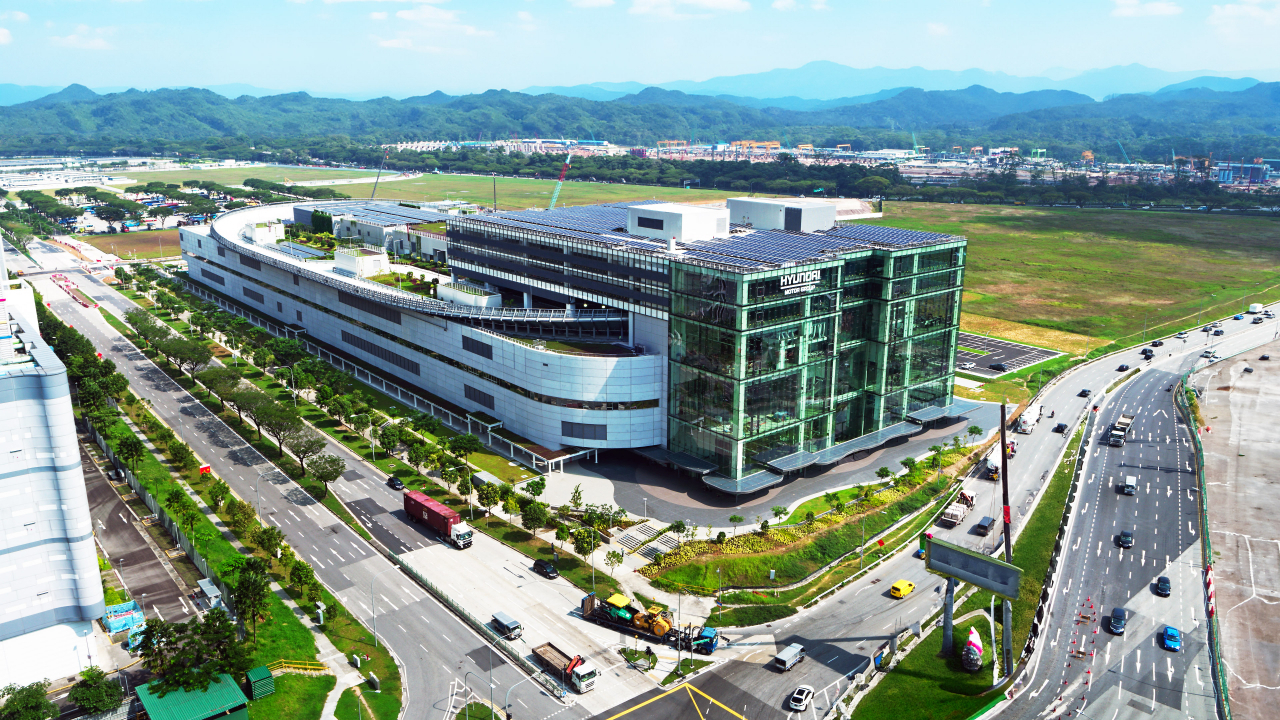
SINGAPORE -- When asked to picture an auto-manufacturing plant, one would easily think of multiple assembly lines filled with engineers and vehicle parts being transported to their next destinations. Hyundai Motor Group Innovation Center Singapore, or HMGICS, is anything but that.
Built to illustrate the future of vehicle production, the complex resembles more of a high-tech lab, filled with roaming autonomous robots, a massive smart farming system and a dizzying number of digital screens.
Hyundai Motor took a group of reporters from South Korea on a press tour of its latest smart facility in Singapore last week, a few days ahead of its grand opening ceremony. The first thing that commands attention is an indoor smart farming system set up next to the Pony, the carmaker’s first mass-produced vehicle, and the Ioniq 5, the automaker’s awards-winning electric vehicle.
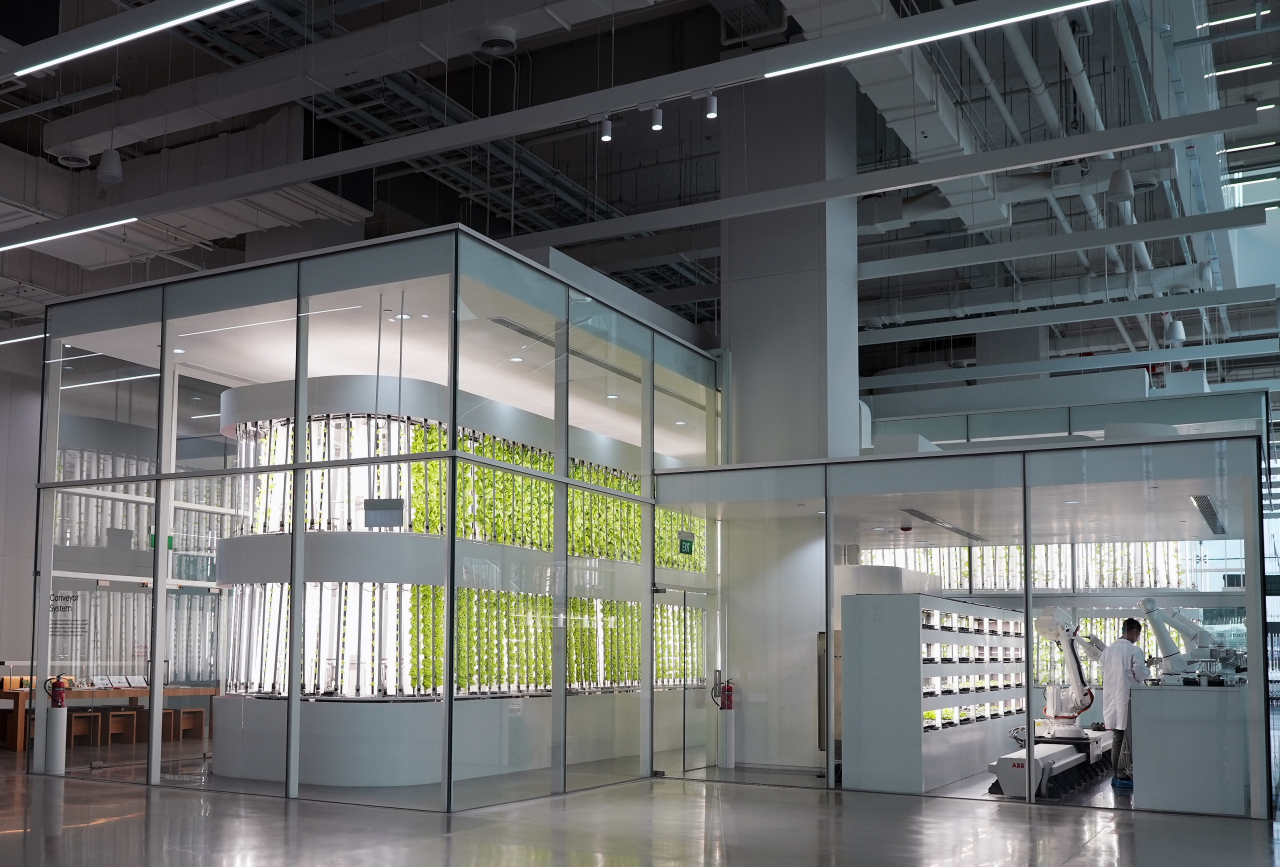
The smart farming system, which consisted of 568 towers on an automated conveyor belt system that operates seeding robots, transplanting robots and harvesting robots. The Korean automaker said the system is to show how Singaporean authorities can utilize such future solutions to boost the percentage of self-supplied food to 30 percent by 2030 from the current 10 percent.
“Mobility has played a huge role in urban development,” said Jung Hong-bum, CEO of HMGICS.
“As we developed vehicles, cities expanded and megacities were born. As for their side effects, the problem of whether the Earth can be sustained in the future occurred. We believe new mobility must solve that problem. At HMGICS, we will innovate technology and systems, pondering about how various factors in the future will impact the market and how we can develop the products (that meet the future demands).”
An Ioniq 5-themed welcome lounge greeted visitors next to the smart farming system, demonstrating how the EV uses reused, eco-friendly materials and parts to give a sense of Hyundai Motor’s efforts to create a sustainable future.
Research and development areas made up the rest of HMGICS’ first floor. Locally hired engineers as well as Korean employees were working on testing and advancing robotic arms and assembly scanning systems for vehicles. They said their goal is to enable robotics arms to freely pick up and carry thin cables and reduce the time it takes for the scanning systems to create a 3D blueprint of vehicles for faster assembly.
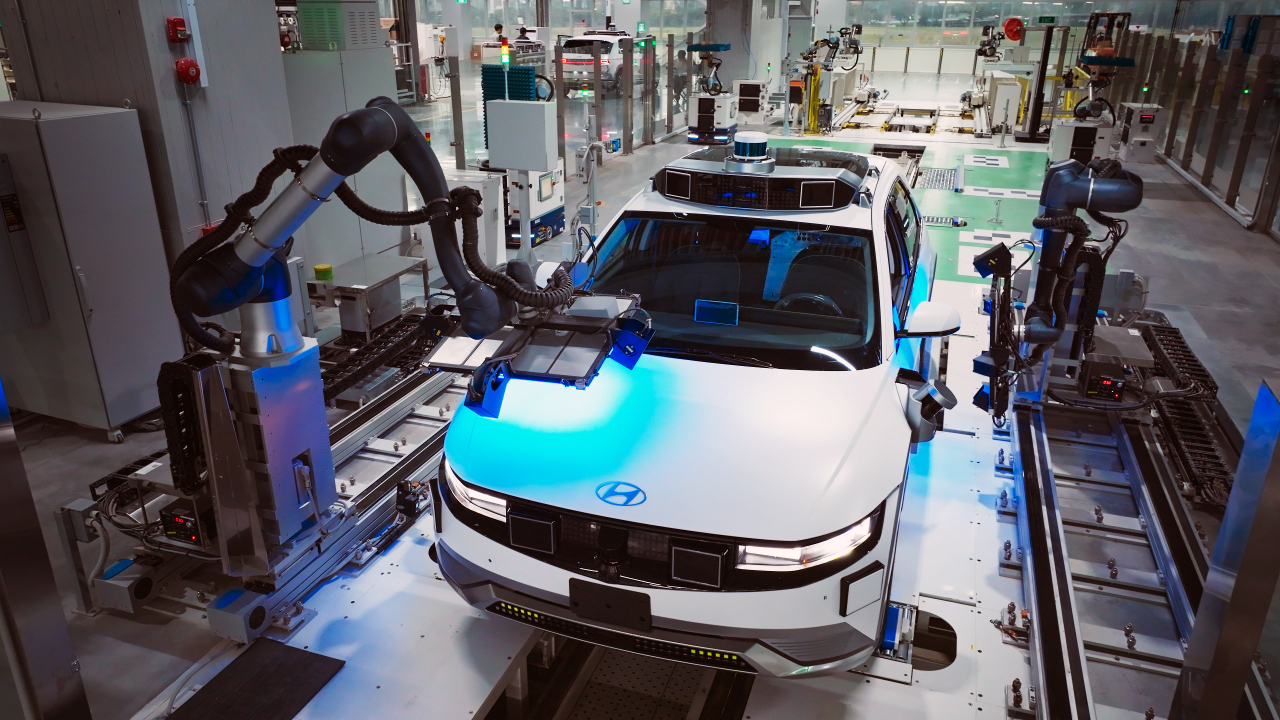
“The logistics system (at HMGICS) has been far more automated than other factories,” said Spencer Lee, a manufacturing control manager at HMGICS who used to work in the aviation industry. HMGICS currently has a logistics automation rate of 65 percent and plans to increase it to 80 percent.
“Utilizing many robots to automate various systems is also a big advantage. We can also increase the production efficiency by flexibly operating between processes that take a long time and processes that take less time.”
Dozens of autonomous mobile robots were moving seamlessly on the third floor of the complex, where the vehicles were assembled. When a reporter abruptly stepped in the way of the moving robot carrying auto parts, it stopped without making contact as it had been equipped with cameras and sensors.
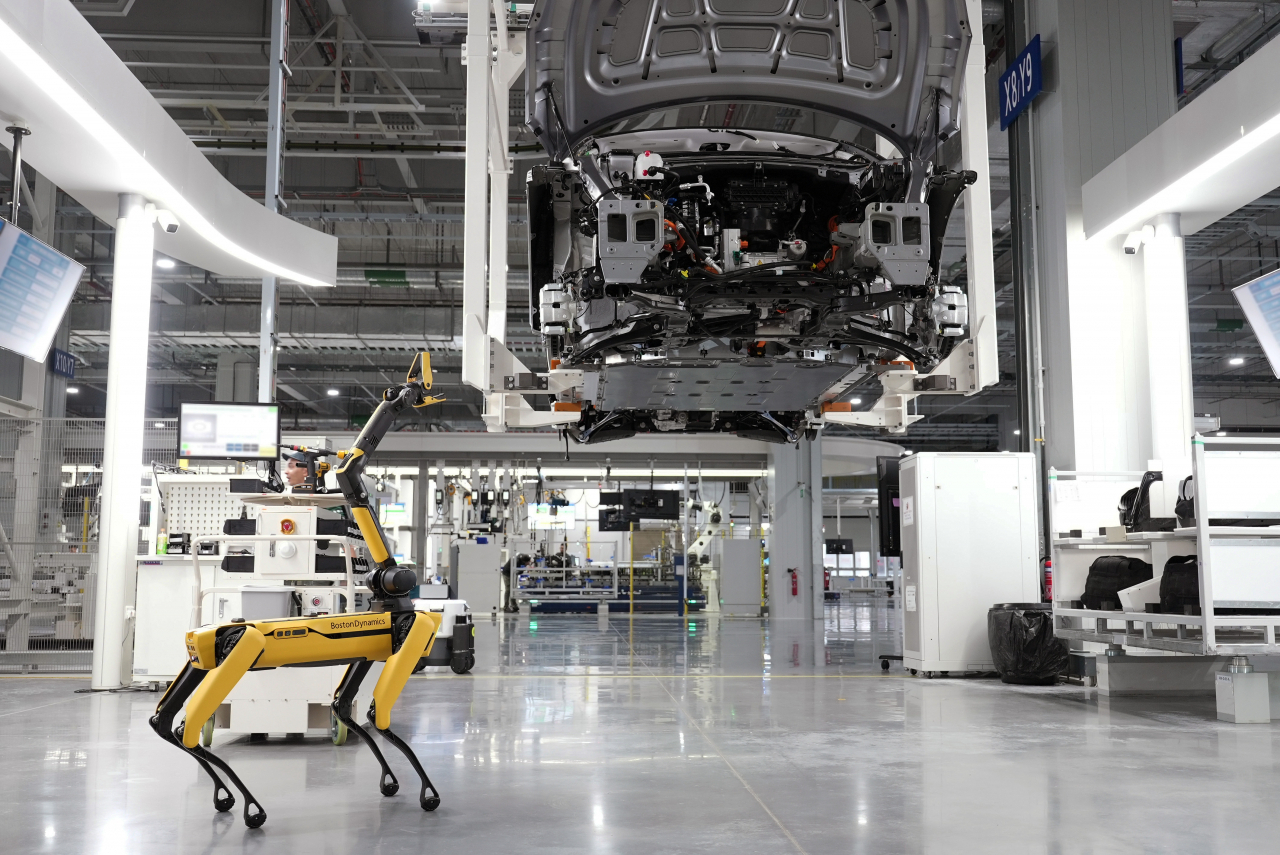
As for each step of the assembly, Hyundai-backed Boston Dynamics’ four-legged robot Spot followed the work process to take pictures to ensure that everything had been installed properly at each station. The Spot-taken photos are sent to the factory’s artificial intelligence program, which would give real-time feedback to the on-site workers.
Although HMGICS currently manufactures only the Ioniq 5 and the Ioniq 5 Robotaxi, a level 4 autonomous vehicle, its cell system allows for flexible production of other models if needed. Unlike traditional conveyor belts, a cell can be set up in just three days to meet a sudden hike in demand for certain vehicles.
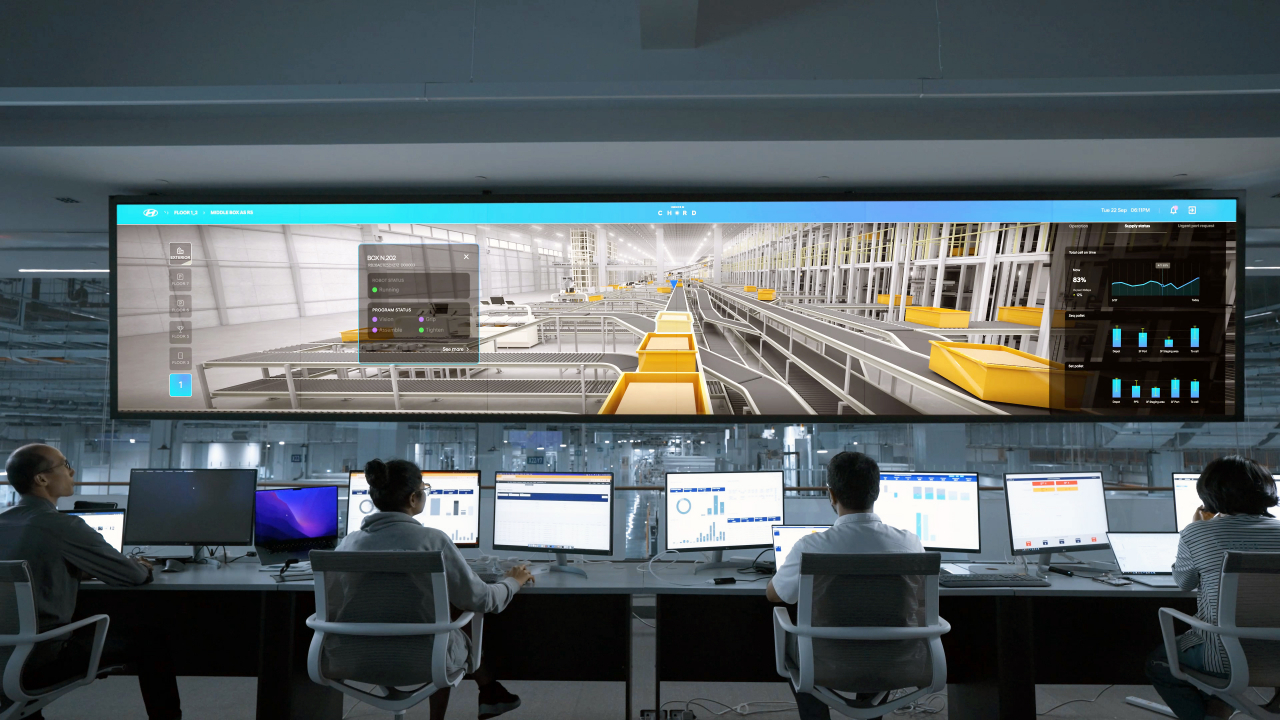
According to Hyundai Motor, HMGICS has the world’s first technology for automatically installing chassis. Its work speed is already up to half of the automaker’s fastest manual assembly line. The automaker said HMGICS boasts the world’s most automated assembly system with 46 percent of the entire process being done autonomously, adding that the second-most automated vehicle plant has a 16 percent automation rate. HMGICS operates over 250 robots.
The Digital Command Center on the fourth floor showed the realization of digital twin technology and meta-factory. The three walls of the command center had big screens showing everything happening on the third floor in real time by turning all of the information into data. The digital control is capable of analyzing any issues in either logistics or assembly and optimizing every automated process to decrease downtime through simulation.
“HMGCIS’ goal is to achieve completely autonomous production,” said Jung.
“Other factories call themselves smart factories but they are just about low levels of optimization through data collection in some processes. What Hyundai Motor Group seeks is throughout intellectualization and autonomy of the factory. That is our differentiation.”
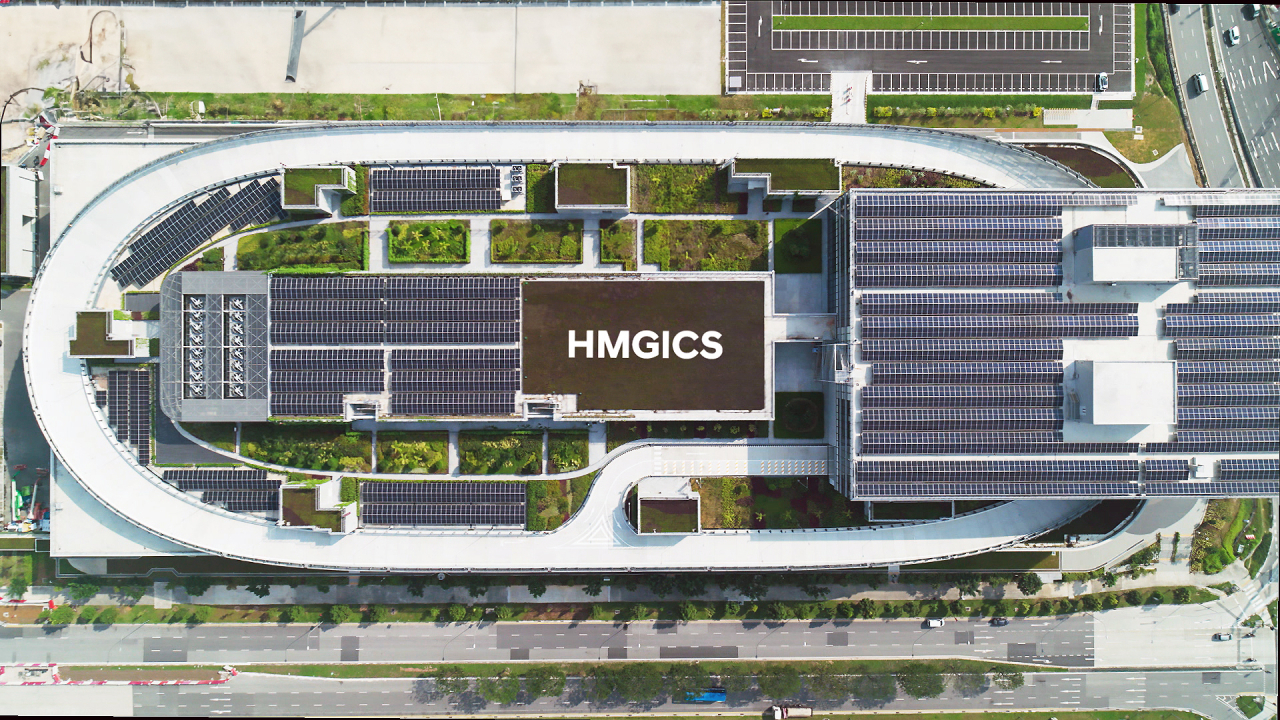



















![[Today’s K-pop] Treasure to publish magazine for debut anniversary](http://res.heraldm.com/phpwas/restmb_idxmake.php?idx=642&simg=/content/image/2024/07/26/20240726050551_0.jpg&u=)